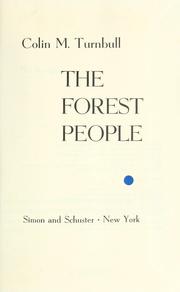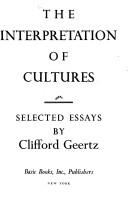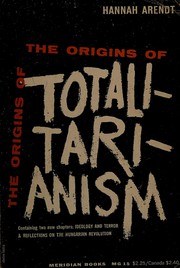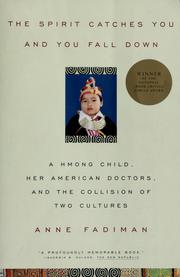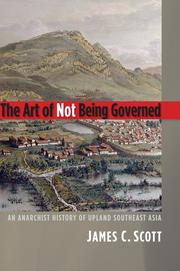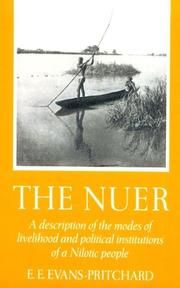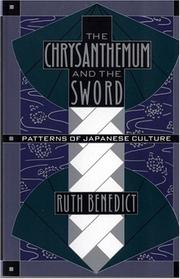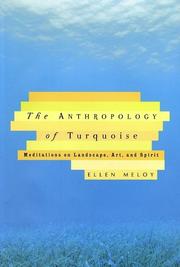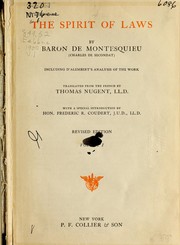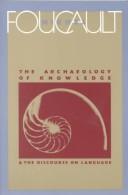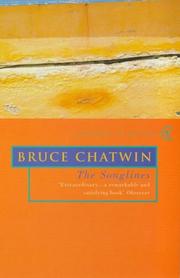Are you fascinated by the study of human societies and cultures? Whether you’re an anthropology student, a curious reader, or a seasoned professional, this list of the 20 best books on anthropology is sure to pique your interest. From groundbreaking research to compelling narratives, these anthropology books offer a diverse range of perspectives and insights into the complexities of human behavior and cultural practices. Whether you’re interested in evolutionary anthropology, cultural anthropology, or archaeology, there’s something for everyone on this list. Let’s dive into the world of anthropology and explore the 20 must-read books that will broaden your understanding of the human experience.
Contents
- 1 20 Best Anthropology Books
- 2 Sapiens: A Brief History of Humankind
- 3 Guns, Germs, and Steel: The Fates of Human Societies
- 4 The Forest People
- 5 The Interpretation of Cultures
- 6 The Origins of Totalitarianism
- 7 The Gift: Forms and Functions of Exchange in Archaic Societies
- 8 The Serpent and the Rainbow
- 9 The Social Life of Things: Commodities in Cultural Perspective
- 10 The Spirit Catches You and You Fall Down
- 11 The Art of Not Being Governed: An Anarchist History of Upland Southeast Asia
- 12 The Nuer: A Description of the Modes of Livelihood and Political Institutions of a Nilotic People
- 13 The Chrysanthemum and the Sword: Patterns of Japanese Culture
- 14 The Anthropology of Turquoise: Reflections on Desert, Sea, Stone, and Sky
- 15 The Spirit of the Laws
- 16 The Making of Europe: Conquest, Colonization, and Cultural Change, 950-1350
- 17 The Archaeology of Knowledge
- 18 The World Until Yesterday: What Can We Learn from Traditional Societies?
- 19 The Savage Mind
- 20 The Origin of Species
- 21 The Songlines
- 22 Final Thoughts on Best Anthropology Books
- 23
20 Best Anthropology Books
Sapiens: A Brief History of Humankind
by Yuval Noah Harari
Sapiens: A Brief History of Humankind by Yuval Noah Harari is a captivating book on anthropology that takes readers on a thrilling journey through the history of our species. Harari explores the major milestones in the development of Homo sapiens, from the Cognitive Revolution to the Agricultural Revolution and beyond. He delves into the cultural, social, and technological advancements that have shaped human societies and the world as we know it today. Harari’s perspective is thought-provoking and insightful, challenging readers to reconsider their understanding of humanity’s past and future. With a unique blend of storytelling and scholarly analysis, Sapiens offers a compelling narrative that illuminates the complexities of our species’ evolution. This anthropology book is a must-read for anyone interested in the history of humankind and the forces that have shaped our modern world.
Guns, Germs, and Steel: The Fates of Human Societies
by Jared Diamond
Guns, Germs, and Steel: The Fates of Human Societies by Jared Diamond is a groundbreaking book on anthropology that explores the reasons behind the global dominance of certain societies. Diamond delves into the impact of geography, agriculture, and technology on the development of civilizations, offering an intriguing analysis of why some societies thrived while others faltered. The book provides a comprehensive overview of human history, examining the role of factors such as domestication of plants and animals, the spread of diseases, and the availability of natural resources in shaping the destinies of different societies.
Through captivating storytelling and meticulous research, Diamond presents a compelling argument for the disparities in human societies, challenging conventional notions of cultural superiority. This thought-provoking anthropology book offers a fresh perspective on the forces that have shaped the modern world, shedding light on the intricate interplay of environment, technology, and human ingenuity. Guns, Germs, and Steel is a must-read for anyone interested in understanding the complex dynamics of human civilizations and the factors that have influenced their trajectories.
The Forest People
by Colin Turnbull
The Forest People by Colin Turnbull is a captivating and insightful book on anthropology that takes readers deep into the lives of the Mbuti Pygmies in the Ituri Forest of the Congo. Through his immersive and empathetic storytelling, Turnbull provides a vivid portrayal of the Mbuti’s unique culture, traditions, and way of life. He delves into their social structure, hunting techniques, and spiritual beliefs, offering a rich and intimate understanding of this fascinating community.
Turnbull’s book about anthropology is a compelling exploration of the interconnectedness between humans and the natural world, as well as the complexities of cultural diversity. His evocative prose and keen observations bring the Mbuti people to life on the pages, allowing readers to gain a profound appreciation for their resilience, resourcefulness, and profound connection to the forest. The Forest People offers a captivating glimpse into a world that is both foreign and familiar, making it a must-read for anyone interested in anthropology, indigenous cultures, and the human experience.
The Interpretation of Cultures
by Clifford Geertz
The Interpretation of Cultures by Clifford Geertz is a seminal book on anthropology, exploring the complex and nuanced ways in which cultures are constructed and interpreted. Geertz delves into the idea that culture is a system of inherited conceptions expressed in symbolic forms, and examines the role of symbols, rituals, and social structures in shaping human behavior and society. Through his in-depth analysis, Geertz emphasizes the importance of understanding the context and meaning behind cultural practices, rather than simply viewing them as isolated customs. He argues that by interpreting these cultural symbols and meanings, we can gain a deeper understanding of different societies and their worldviews.
This influential anthropology book provides a thought-provoking exploration of the nature of culture and the significance of its interpretation in the study of human societies. Geertz’s engaging and insightful writing style makes The Interpretation of Cultures a must-read for anyone interested in delving into the intricate and fascinating world of anthropology.
The Origins of Totalitarianism
by Hannah Arendt
The Origins of Totalitarianism, written by Hannah Arendt, is a groundbreaking book on political science that delves into the rise of totalitarian regimes in the 20th century. Arendt explores the historical and sociological factors that contributed to the emergence of totalitarianism, drawing on her extensive knowledge of history and political theory. This seminal work examines the roots of totalitarianism, its impact on society, and the consequences for individual freedom and human rights.
Arendt’s analysis is thought-provoking and comprehensive, offering a deep understanding of the complexities of power, ideology, and mass movements. The book provides valuable insights into the nature of totalitarianism and its enduring relevance in contemporary politics. Whether you’re a political science enthusiast or simply interested in understanding the darker aspects of human behavior, The Origins of Totalitarianism is an essential read that will challenge your perceptions and expand your knowledge of the subject.
The Gift: Forms and Functions of Exchange in Archaic Societies
by Marcel Mauss
The Gift: Forms and Functions of Exchange in Archaic Societies, written by Marcel Mauss, is a classic anthropology book that explores the cultural significance of gift-giving in traditional societies. Mauss delves into the complex rituals and social obligations surrounding gift exchange in various cultures, drawing on examples from Polynesia, Melanesia, and North America to illustrate his arguments. Through his insightful analysis, Mauss uncovers the underlying principles behind gift-giving, demonstrating how it serves as a mechanism for building and maintaining social relationships, as well as a means of establishing prestige and power within a community.
He also examines the reciprocal nature of gift-giving and the ways in which it creates a sense of obligation and indebtedness among individuals. In doing so, Mauss sheds light on the role of gifts in the economy of traditional societies and their significance in shaping social structures. The Gift is a thought-provoking and influential work that continues to be a foundational text in the study of cultural anthropology.
The Serpent and the Rainbow
by Wade Davis
The Serpent and the Rainbow by Wade Davis is a captivating book on anthropology that delves into the mysterious world of voodoo and the search for the secrets of the zombie drug in Haiti. Davis, an ethnobotanist, takes readers on a thrilling journey into the heart of Haitian culture, exploring the rituals, beliefs, and traditions of the people. Through his immersive storytelling, Davis uncovers the practices of the voodoo priests and their use of natural elements to create the infamous zombie powder, shedding light on the intersection of spirituality, medicine, and folklore.
With vivid descriptions and a keen eye for detail, The Serpent and the Rainbow opens a window into a world that is both mesmerizing and enigmatic. Davis’s meticulous research and firsthand experiences make this anthropology book a compelling read, offering readers a rare glimpse into a culture shrouded in mystery and mystique. Whether you are interested in anthropology, ethnobotany, or simply love a good adventure story, The Serpent and the Rainbow is sure to captivate and intrigue.
The Social Life of Things: Commodities in Cultural Perspective
by Arjun Appadurai
The Social Life of Things: Commodities in Cultural Perspective by Arjun Appadurai is an influential book on anthropology that explores the complex relationship between material objects and human society. Appadurai delves into the ways in which commodities are not just passive objects, but rather active participants in shaping social and cultural life. Through a series of case studies from different parts of the world, he examines how objects are imbued with meaning, value, and significance within various cultural contexts. The book offers a thought-provoking analysis of how commodities circulate, transform, and acquire new meanings as they move through different social and economic systems. It also sheds light on the power dynamics, social hierarchies, and cultural exchanges that are embedded in the global trade of goods. The Social Life of Things is a must-read for anyone interested in understanding the interconnectedness of material culture, society, and human behavior.
The Spirit Catches You and You Fall Down
by Anne Fadiman
The Spirit Catches You and You Fall Down by Anne Fadiman is a captivating book on anthropology that delves into the collision of two cultures: Hmong and American. The book follows the story of a Hmong family in California and their daughter, Lia, who suffers from epilepsy. Fadiman expertly weaves together the history, culture, and medical practices of the Hmong people with the American healthcare system, illustrating the challenges and misunderstandings that arise when two vastly different belief systems clash.
Through in-depth research and poignant storytelling, Fadiman explores the complexities of cross-cultural communication and the impact it has on individuals and their families. The book provides a thought-provoking examination of the ways in which anthropology and medicine intersect, and the consequences when they fail to do so. The Spirit Catches You and You Fall Down is a powerful and insightful anthropology book that raises important questions about cultural competence, empathy, and the importance of understanding diverse perspectives in healthcare.
The Art of Not Being Governed: An Anarchist History of Upland Southeast Asia
by James C. Scott
The Art of Not Being Governed: An Anarchist History of Upland Southeast Asia by James C. Scott is a fascinating anthropology book that delves into the history of upland Southeast Asia and the communities that have resisted state control. Scott explores the idea of “Zomia,” a term he uses to describe the region’s diverse and stateless societies that have historically evaded the reach of lowland states. Through meticulous research and engaging storytelling, Scott uncovers the ways in which these communities have maintained their autonomy and resisted assimilation by state powers.
This book about anthropology challenges traditional notions of state formation and offers a fresh perspective on the complex relationship between state power and the people it seeks to govern. Scott’s work is a thought-provoking exploration of the resilience and agency of marginalized communities, making it essential reading for anyone interested in the dynamics of power, resistance, and cultural identity.
The Nuer: A Description of the Modes of Livelihood and Political Institutions of a Nilotic People
by E.E. Evans-Pritchard
The Nuer: A Description of the Modes of Livelihood and Political Institutions of a Nilotic People by E.E. Evans-Pritchard is a groundbreaking anthropology book that provides a comprehensive look at the Nuer people of Sudan. Evans-Pritchard, known for his influential work in social anthropology, delves into the intricate social structure, cultural practices, and political organization of the Nuer, offering a deep understanding of their way of life.
Through meticulous research and immersive fieldwork, the author provides a vivid portrayal of the Nuer society, exploring their pastoral livelihood, kinship ties, religious beliefs, and governance systems. This book about anthropology offers valuable insights into the complexities of a traditional African community, shedding light on the dynamics of power, conflict resolution, and social cohesion within the Nuer tribe.
With its rich ethnographic detail and nuanced analysis, The Nuer is a timeless classic in the field of anthropology, offering readers a fascinating glimpse into the cultural intricacies and social dynamics of a Nilotic people.
The Chrysanthemum and the Sword: Patterns of Japanese Culture
by Ruth Benedict
The Chrysanthemum and the Sword: Patterns of Japanese Culture, written by Ruth Benedict, is a captivating anthropology book that delves into the intricacies of Japanese society. Benedict offers a rich and insightful exploration of Japanese culture, providing readers with a deeper understanding of the unique customs, traditions, and values that shape the country’s social fabric.
Through her meticulous research and keen observations, Benedict uncovers the intricate patterns that define Japanese behavior, communication, and social structure. She delves into the complexities of Japanese etiquette, relationships, and the intricate balance between individualism and collectivism.
With a keen eye for detail and a profound respect for the subject matter, Benedict paints a vivid portrait of Japanese culture, offering readers a thought-provoking and enlightening journey into the heart of Japan. Whether you’re a student of anthropology, a Japan enthusiast, or simply curious about different cultures, The Chrysanthemum and the Sword is a must-read that will enrich your understanding of the world.
The Anthropology of Turquoise: Reflections on Desert, Sea, Stone, and Sky
by Ellen Meloy
The Anthropology of Turquoise: Reflections on Desert, Sea, Stone, and Sky by Ellen Meloy is an intriguing exploration of the connections between human culture and the natural world. This captivating book on anthropology delves into the significance of turquoise in various cultures, from the deserts of the American Southwest to the shores of the Mediterranean.
Meloy’s vivid prose and keen observations invite readers to consider the ways in which humans have interacted with and revered turquoise throughout history. Through her reflections on desert, sea, stone, and sky, she illuminates the deep cultural and spiritual significance of this captivating gemstone.
With a mix of personal anecdotes, historical insights, and scientific facts, Meloy weaves a compelling narrative that will appeal to anyone interested in anthropology, natural history, or the intersection of human society and the environment. The Anthropology of Turquoise is a thought-provoking and beautifully written anthropology book that will transport readers to distant lands and inspire a deeper appreciation for the world around them.
The Spirit of the Laws
by Montesquieu
The Spirit of the Laws, written by Montesquieu, is a groundbreaking book on anthropology that explores the principles of government and the relationship between laws and the social and physical environment. Published in 1748, this influential work delves into the ideas of separation of powers, the importance of checks and balances, and the impact of climate, culture, and geography on political systems.
Montesquieu’s anthropology book is a thought-provoking examination of the diverse forms of government across different societies and the factors that shape them. Through a comparative analysis of political systems, he offers insights into the nature of despotism, republics, and monarchies, and the conditions that promote liberty and justice.
With its engaging and insightful exploration of political theory and anthropology, The Spirit of the Laws continues to be a seminal work that has influenced political thinkers and scholars for centuries.
The Making of Europe: Conquest, Colonization, and Cultural Change, 950-1350
by Robert Bartlett
The Making of Europe: Conquest, Colonization, and Cultural Change, 950-1350 by Robert Bartlett is a captivating anthropology book that delves into the transformation of Europe during the medieval period. Bartlett explores the dynamic forces of conquest, colonization, and cultural change that shaped the continent between 950 and 1350. Through a rich tapestry of historical evidence, he reveals the interconnectedness of various regions and peoples, highlighting the complex interactions that led to the creation of a new European identity. From the impact of the Crusades to the spread of Christianity and the rise of feudalism, Bartlett offers a comprehensive analysis of the key factors that contributed to the making of Europe.
This book is a must-read for anyone interested in understanding the development of Europe during the Middle Ages. Bartlett’s engaging narrative and meticulous research provide readers with a deeper insight into the anthropological forces that shaped the continent, making it an invaluable resource for students, scholars, and history enthusiasts alike.
The Archaeology of Knowledge
by Michel Foucault
The Archaeology of Knowledge by Michel Foucault is a thought-provoking book about anthropology that challenges traditional historical and social science methodologies. Foucault introduces the concept of “archaeology” as a way to analyze the discursive formations of knowledge and power in society. Through a detailed examination of various historical texts and documents, he explores how knowledge is constructed and how it shapes our understanding of the world.
By delving into the relationships between language, power, and knowledge, Foucault offers a unique perspective on the ways in which information is produced, circulated, and controlled. His approach encourages readers to question the prevailing narratives of history and to consider the underlying structures that influence our understanding of the past and present.
With its critical insights and innovative approach, The Archaeology of Knowledge is a must-read for anyone interested in anthropology and the social sciences. Foucault’s exploration of the complexities of knowledge and power continues to be influential in the fields of history, philosophy, and cultural studies.
The World Until Yesterday: What Can We Learn from Traditional Societies?
by Jared Diamond
The World Until Yesterday: What Can We Learn from Traditional Societies? by Jared Diamond is a thought-provoking book on anthropology that explores the lessons contemporary society can learn from traditional cultures. Diamond, a renowned author and anthropologist, draws on his extensive research and personal experiences to shed light on the practices and customs of traditional societies and how they can offer valuable insights into modern challenges.
Through compelling anecdotes and in-depth analysis, Diamond examines a wide range of topics, including conflict resolution, child-rearing, diet, and healthcare, to highlight the diverse ways in which traditional societies have adapted and thrived over time. By juxtaposing these practices with those of modern societies, Diamond prompts readers to reevaluate their own beliefs and behaviors, and consider alternative approaches to common issues.
This anthropology book not only offers a fascinating glimpse into the diversity of human culture, but also presents a compelling argument for the importance of understanding and learning from traditional societies. With its engaging narrative and thought-provoking insights, The World Until Yesterday is a must-read for anyone interested in the complexities of human society and the potential for cross-cultural learning.
The Savage Mind
by Claude Lévi-Strauss
The Savage Mind by Claude Lévi-Strauss is a groundbreaking book on anthropology that challenges the conventional wisdom about the nature of human thought. Lévi-Strauss explores the concept of “primitive” and “savage” societies and argues that their understanding of the world is just as sophisticated as that of modern Western cultures. He introduces the idea of “structuralism” as a way to analyze the universal patterns of human cognition and society, transcending the boundaries of time and culture.
This book about anthropology delves into the complexities of human culture, rituals, and myths, offering a fresh perspective on the so-called “savage mind.” Lévi-Strauss’s engaging narrative and thought-provoking insights make this anthropology book a must-read for anyone interested in understanding the fundamental principles of human thought and society. Whether you’re a student of anthropology or simply a curious reader, The Savage Mind will challenge your preconceptions and expand your understanding of the human experience.
The Origin of Species
by Charles Darwin
The Origin of Species, written by Charles Darwin, is a groundbreaking book on anthropology that revolutionized the way we understand the natural world. In this seminal work, Darwin presents his theory of evolution by natural selection, challenging the prevailing belief in the fixity of species and offering a compelling explanation for the diversity of life on Earth.
Darwin’s meticulous observations and compelling arguments laid the foundation for the field of evolutionary anthropology, and his ideas continue to shape our understanding of biology, ecology, and the interconnectedness of all living things. The Origin of Species is a pivotal book about anthropology that has had a profound impact on scientific thought and continues to be a source of inspiration and debate.
The Songlines
by Bruce Chatwin
The Songlines by Bruce Chatwin is a captivating exploration of the Aboriginal culture in Australia. Blending travelogue and anthropology, Chatwin delves into the concept of songlines, the ancient Aboriginal practice of navigating the land through songs and stories. This unique anthropological approach provides a deep insight into the indigenous people’s connection to the land and their traditional way of life.
Chatwin’s lyrical prose and inquisitive nature make this book a compelling read for anyone interested in anthropology, culture, and travel. Through his encounters with Aboriginal elders and his own experiences walking the songlines, Chatwin paints a vivid picture of the nomadic lifestyle and the spiritual significance of the Australian outback. The book offers a thought-provoking examination of the intersection between culture, identity, and the natural world, making it a must-read for anyone intrigued by the complexities of human society.
For those seeking an engaging and enlightening anthropology book, The Songlines offers a captivating journey into the heart of Aboriginal culture and the timeless traditions that have shaped it.
Final Thoughts on Best Anthropology Books
Exploring the rich diversity of human culture and society, the 20 best books about Anthropology offer a fascinating journey into the field of social sciences. From classic texts to modern works, these books provide invaluable insights into the study of human behavior, evolution, and cultural practices. Whether you’re a student, researcher, or simply curious about the world around you, these books are essential reading for anyone interested in the complexities of human society. Dive into these compelling works and expand your understanding of the world with the 20 best books about anthropology.
Which book about Anthropology is best?
The best book on Anthropology can vary with personal preference, but three widely recommended titles are:
- Sapiens: A Brief History of Humankind by Yuval Noah Harari,
- Guns, Germs, and Steel: The Fates of Human Societies by Jared Diamond,
- The Forest People by Colin Turnbull.
Each offers valuable insights and could be a great starting point.
What are the best books to learn about Anthropology?
For those looking to learn about Anthropology, there is a wealth of literature that can provide a comprehensive understanding of the subject. Some of the most highly recommended books include:
- Sapiens: A Brief History of Humankind by Yuval Noah Harari,
- Guns, Germs, and Steel: The Fates of Human Societies by Jared Diamond,
- The Forest People by Colin Turnbull,
- The Interpretation of Cultures by Clifford Geertz,
- The Origins of Totalitarianism by Hannah Arendt,
- The Gift: Forms and Functions of Exchange in Archaic Societies by Marcel Mauss,
- The Serpent and the Rainbow by Wade Davis,
- The Social Life of Things: Commodities in Cultural Perspective by Arjun Appadurai,
- The Spirit Catches You and You Fall Down by Anne Fadiman,
- The Art of Not Being Governed: An Anarchist History of Upland Southeast Asia by James C. Scott
These books offer a range of perspectives on Anthropology, covering various aspects and approaches to the subject.
What are the best books about Anthropology?
The best books about Anthropology are:
- Sapiens: A Brief History of Humankind by Yuval Noah Harari,
- Guns, Germs, and Steel: The Fates of Human Societies by Jared Diamond,
- The Nuer: A Description of the Modes of Livelihood and Political Institutions of a Nilotic People by E.E. Evans-Pritchard,
- The Chrysanthemum and the Sword: Patterns of Japanese Culture by Ruth Benedict,
- The Social Life of Things: Commodities in Cultural Perspective by Arjun Appadurai,
- The Gift: Forms and Functions of Exchange in Archaic Societies by Marcel Mauss.
Each offers unique insights into the subject. While these books about Anthropology are highly regarded, it’s important to note that any list of ‘best’ books is subjective and reflects a range of opinions.
What are the best Anthropology books of all time?
Choosing the best Anthropology books of all time can vary depending on who you ask, but five titles that are often celebrated include
- Sapiens: A Brief History of Humankind by Yuval Noah Harari,
- Guns, Germs, and Steel: The Fates of Human Societies by Jared Diamond,
- The Origins of Totalitarianism by Hannah Arendt,
- The Social Life of Things: Commodities in Cultural Perspective by Arjun Appadurai,
- and The Nuer: A Description of the Modes of Livelihood and Political Institutions of a Nilotic People by E.E. Evans-Pritchard.
Each of these books has made a significant impact in the field of Anthropology and continues to be influential today.



